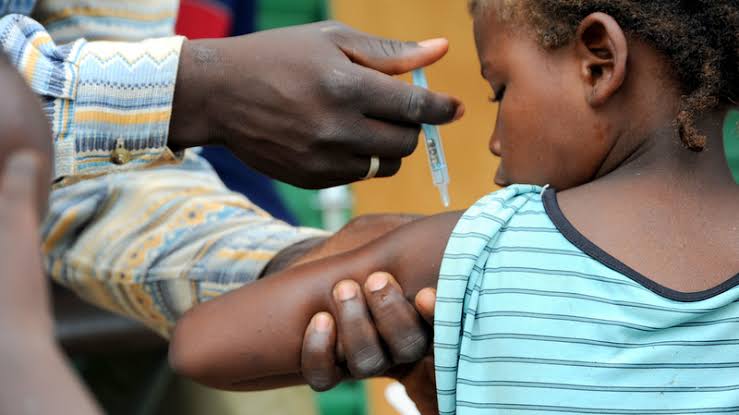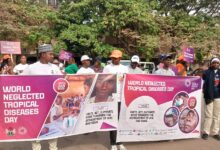‘Africa Needs To Vaccinate 33m Children In Three Years’

The World Health Organisation (WHO) has said that an estimated 33 million children will need to be vaccinated in Africa between 2023 and 2025.
WHO Country Representative in Nigeria, Dr. Walter Kazadi Mulombo made this known on Tuesday, April 25, 2023 at a Media Round Table on the 2023 African Vaccination Week celebration in Abuja.
Dr. Mulombo stated that the unprecedented impact of Covid-19 pandemic on routine immunisation services drove up the number of zero-dose and under-immunised children, rising by 16% between 2019 and 2021.
He disclosed that the pandemic pushed the cumulative total between 2019 and 2021 to around 33 million, which represents nearly half the global estimate. Therefore, an estimated 33 million children will need to be vaccinated in Africa between 2023 and 2025.
He said it would put the continent back on track to achieve the 2030 global immunisation goals that include reducing morbidity and mortality from vaccine-preventable diseases:
“Reaching these children would require renewed and intensified efforts by the Government and partners,’’ he said.
The WHO Country Representative noted that the Organisation had conducted a high level event during the African Union Summit in February 2023, where African heads of state endorsed a declaration aimed at revamping and scaling up routine immunization across the continent and implementing urgent measures to address persistent bottlenecks in vaccines and health care delivery systems.
“To realize this declaration, this year African Vaccination Week (AVW) and World Immunization Week, from 24–30 April, with the theme ‘The Big Catch-Up’ has been announced. This is a global push by WHO and partners to intensify efforts to reach children, who missed vaccinations, as well as to restore and strengthen routine immunization programmes. ‘The Big Catch Up’ is actually a yearlong campaign aiming to reverse the serious setbacks in routine immunization,’’ he explained.
Dr. Mulombo said the pro-activeness of the Nigerian government and the National Primary Health Care Development Agency for implementing the Optimized Outreach Sessions, integration of Routine Immunization during Covid-19 vaccination, Measles and Yellow Fever Supplementary Immunization Activities were the key to reducing the high burden of zero-dose children in Nigeria as it aligned with the theme for the 2023 Africa Vaccination Week celebration.
“The plan to introduce malaria vaccine in routine immunization and Human Papilloma-virus Vaccine (HPV) in 2023 and 2024 are commendable as it aligns with establishing a life-course platform for immunization for optimum dividend from vaccination,” he said.
Dr. Mulombo noted WHO’s Support for AVW Supporting Nigeria’s full participation in the Regional Working Group for Catch-up to ensure effective planning and resource mobilization for the 20 countries with high burden of zero dose children in the region.
“WHO since 2015 issued revised immunization scheduled to support the ‘Big Catch-up’ where children who have missed being vaccinated can be safely vaccinated with appropriate vaccines, this is part of over 15 guidelines and strategies issued to countries including Nigeria.
“Supporting the NPHCDA engagement with 36 states and the FCT to develop tailored strategies to reach zero dose and unimmunized children
“WHO has prioritized technical support for the Zero Dose agenda and the Big Catch-up in all states and LGAs”, he stated.
The WHO Country Representative said this year’s AVW requires the full participation of all key stakeholders including the media to: Communicate with caregivers to take children for routine immunization services at the nearest health facility.
He urged the media to create awareness to enable children who missed their immunization schedules to go to the nearest health facility to be assessed and vaccinated appropriately.
“Encourage community leaders to take responsibility to organize and participate fully in the conduct of immunization sessions including monitoring uptake of vaccines in the community, encourage Traditional and Religious Leaders as well as Civil Society Groups to mobilize the community to always demand and access immunization services.
“That vaccine is safe and effective against vaccine-preventable diseases”, he stated.






